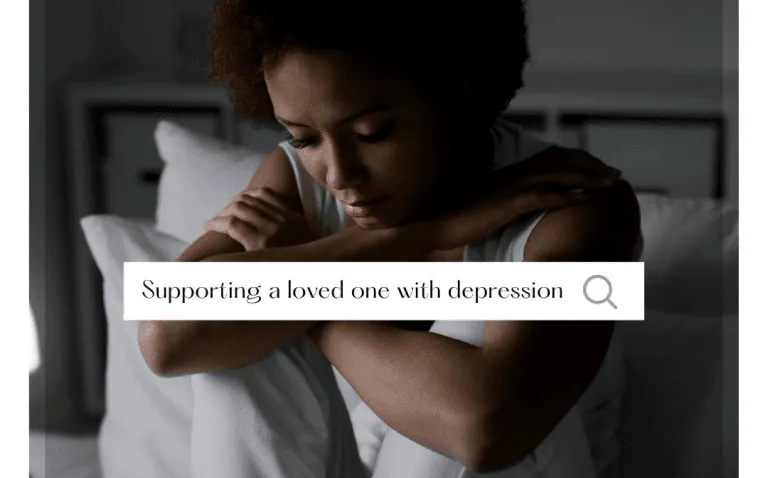Supporting Loved Ones: How to Help Someone With Depression
It’s never easy to see someone you care about struggling. Depression can feel like an invisible wall, isolating the person who is suffering and leaving loved ones unsure of how to help. Knowing how to help someone with depression is a skill we all need, especially as depression and anxiety continue to affect millions of people worldwide. Whether your loved one’s symptoms are mild or severe, whether they’re open to help or resistant, there are ways you can make a meaningful difference.
Recognizing the Signs of Depression
Before you can offer support, it’s essential to recognize the signs of depression. While it varies from person to person, common symptoms include persistent sadness, fatigue, withdrawal from loved ones, changes in sleep or appetite, and a loss of interest in activities they once enjoyed. If your loved one also struggles with anxiety, you may notice additional signs like excessive worrying or restlessness. Learning to spot these symptoms is the first step in understanding how to help someone with depression and anxiety.
Be Present Without Pushing
One of the most valuable things you can do is simply be there. People with depression often feel alone in their struggle, so your consistent presence—whether through a text, a call, or a visit—can be profoundly comforting.
If you’re wondering how do you help someone with depression who doesn’t want help, it’s important to respect their boundaries while gently reminding them that you’re available. Instead of saying, “You need to get better,” try something like, “I’m here for you whenever you’re ready.” Creating a safe space for open dialogue can pave the way for future conversations about getting help.
What to Say (and Not Say) to a Depressed Loved One
The right words matter when supporting someone with depression. Avoid minimizing their feelings with phrases like, “Just think positive,” or “It’s not that bad.” Instead, validate their experience by saying, “I can see you’re going through something really hard. I’m here to listen.”
If you’re struggling to find the right thing to say to a depressed person, remember that empathy goes a long way. Simple, heartfelt statements like, “You’re not alone in this” or “It’s okay to feel how you’re feeling” can make a big difference.
Encourage (But Don’t Force) Professional Help
When it comes to how to help someone with severe depression, professional intervention is often necessary. A telehealth psychiatrist can be an excellent option for those who feel overwhelmed by the idea of going to an in-person appointment. Telehealth psychiatry allows individuals to connect with experts from the comfort of their homes, which can reduce barriers like stigma, travel, or anxiety about seeking help.
If your loved one is hesitant, consider framing professional help as just another tool in their support system. You might say, “Seeing a virtual psychiatrist could be a small step that makes a big difference. It doesn’t mean you’re weak—it means you’re taking care of yourself.”
Offer Practical Support
Depression often zaps energy and motivation, making daily tasks feel impossible. You can help by lightening their load in tangible ways. Offer to run errands, prepare meals, or even accompany them to their first therapy session.
If you’re wondering how can you help someone with depression in a way that feels immediate, consider asking, “What’s one thing I can take off your plate today?” Sometimes even the smallest act of support—like folding laundry or picking up groceries—can relieve some of their burden and show them they’re not alone.
Encourage Small, Manageable Steps
Motivating someone who is depressed can be tricky. It’s important to strike a balance between encouragement and understanding. Large goals may feel impossible to someone in the grip of depression, so start small. Suggest simple, low-pressure activities like taking a short walk, listening to music, or sitting outside for a few minutes.
Acknowledge every effort they make, no matter how small. Statements like, “I’m proud of you for getting out of bed today,” can help reinforce that progress is possible, even if it feels slow.
Learn About Depression
One of the best ways to support your loved one is by educating yourself. Understanding what depression is (and isn’t) helps you avoid common pitfalls and approach your loved one with empathy. It also equips you to better navigate questions like how to help someone with depression who doesn’t want help or how to help a loved one with depression.
Resources like books, reputable websites, and conversations with professionals can offer invaluable insights. You might even consider speaking with a telehealth psychiatrist yourself to learn more about how to support your loved one effectively.
Be Patient—It’s a Marathon, Not a Sprint
Depression doesn’t resolve overnight. Supporting someone with depression requires patience and resilience on your part. It’s okay to feel frustrated or helpless at times, but remember that your presence and efforts are meaningful, even if they don’t seem to make an immediate difference.
If you’re feeling overwhelmed, consider joining a support group or speaking with a mental health professional. Taking care of yourself ensures you have the energy and capacity to help your loved one over the long haul.
Exploring Support Options
Beyond therapy and medication, there are many support options for depression. Encouraging your loved one to explore these options—like support groups, online forums, or mindfulness apps—can help them feel less isolated. Telehealth psychiatry is particularly beneficial for those who face barriers like geographic distance or social anxiety.
Support doesn’t have to come solely from professionals. Community groups, family networks, and trusted friends all play vital roles in fostering recovery. As you explore these options, keep your loved one’s preferences and comfort in mind.
Turning Compassion into Action
Figuring out how to help someone with depression can feel overwhelming, but your efforts matter more than you realize. Even small acts of kindness and understanding can plant seeds of hope in someone who feels lost. Remember, you’re not alone in this journey either—there are resources, professionals, and communities to support you as you support your loved one.
Ultimately, helping someone with depression is about showing up—with patience, love, and a willingness to meet them where they are. And when professional help is needed, tools like telehealth psychiatry and access to a virtual psychiatrist can make the path to healing feel a little less daunting. Together, you can take steps toward brighter days ahead.
If you are seeking help for a loved one, please click here to learn more.





